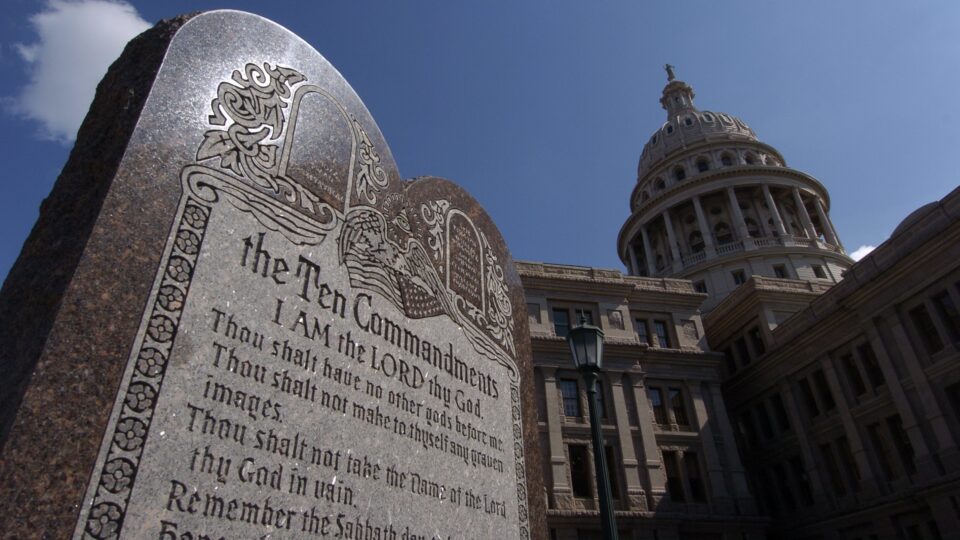
Texas Republicans are cheering at the erosion of the separation of church and state as their proposal to require all public school classrooms in the Lone Star State to display the Ten Commandments inches closer and closer to the finish line.
On Saturday, the Republican-controlled House gave its preliminary approval for the bill, which is expected to go to a final vote in the coming days. It would then be signed into law by Governor Greg Abbott, who in 2005 successfully argued before the Supreme Court for the display of the Ten Commandments in front of the Texas State Capitol.
The bill would require public schools to display a 16×20 inch poster or framed copy of one specific English language version of the Commandments, although exact translations differ depending on denomination and source text used.
Democratic attempts to amend the bill so that schools would also be required to display texts from other religions or provide different translations of the Commandments failed.
If the bill passes into law, Texas would become the largest state to mandate the display of the Ten Commandments in classrooms, joining its neighbor Louisiana, which passed a similar law last year, and Arkansas, which passed a similar law last month. Louisiana’s law is currently on hold pending legal challenges, after a judge ruled that it was “unconstitutional on its face.”
Texas state Rep. Candy Noble, a co-sponsor of the bill, said that its focus was to look at what is “historically important to our nation educationally and judicially.” During the floor debate, Noble also said, “It is incumbent on all of us to follow God’s law and I think we would all be better off if we did.“
If it passes, the law is expected to face similar constitutional challenges to the Louisiana law from critics who consider it to be a violation of the separation of church and state. A letter signed by dozens of Christian and Jewish faith leaders noted that thousands of students educated in Texas schools have no relationship with Christianity or the Ten Commandments.
Robert Tuttle, a professor of religion and law at George Washington University, said of the bill, “The constant presence of a sacred text in the room with them is effectively telling them, ‘Hey, these are things you should read and obey.’” He added, ”That’s not the state’s job—to do religious instruction.”
If the bill does pass, it will undoubtedly face legal challenges that might take the battle all the way to the Supreme Court. Critics of the proposal are hopeful that the court’s recent deadlock in the case of the country’s first religious charter school in Oklahoma means that the court has not entirely abandoned the principle of separating church and state. The Supreme Court’s 4-4 split means that the Oklahoma Supreme Court ruling barring the establishment of the Catholic charter school stands.
Texas lawmakers also recently passed a measure that would allow school districts to provide students and staff a daily voluntary period of time to pray or read a religious text, which Gov. Abbott is expected to sign into law. Unlike the display of the Ten Commandments, that measure is entirely voluntary and applicable to practitioners of all religions.
Democratic state Rep. James Talarico was nevertheless concerned that the language of the bill could increase the ability of school teachers and administrators to reward and incentivize school prayer. He argued, “When we allow teachers and principals, those in positions of power, to impose their religion on other people, especially children, we are undermining the freedom of religion that made this state and this country great, and it is a threat to religious and nonreligious people alike.”

